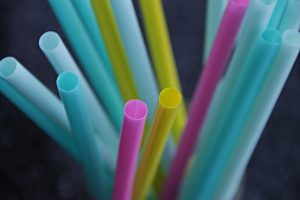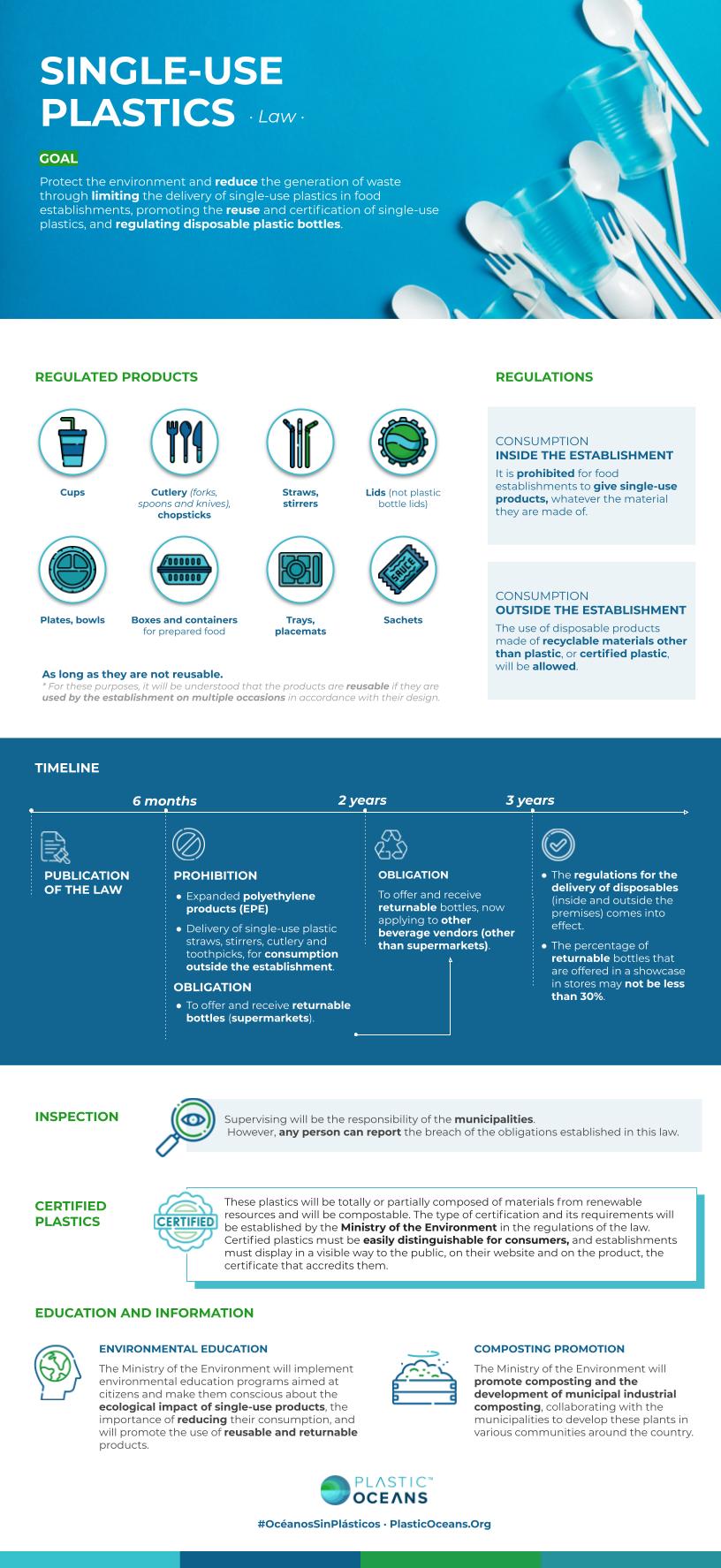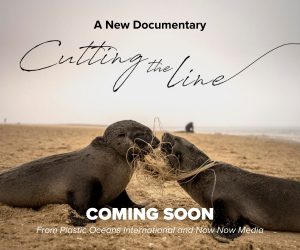Plastic Oceans Chile and Oceana Chile Instrumental In Unanimous Vote
Santiago, Chile, May 20, 2021 – Plastic Oceans International today announces the passing of new legislation in Chile that will implement regulations to greatly reduce single-use plastic waste throughout the country. Although just a formality, the bill will now go to the President for signing and then presented as a public notice, at which time it will become national law.
The historic unanimous vote comes as a result of a collaboration between Oceana Chile and Plastic Oceans Chile, who in 2019 published a report to educate legislators on plastic pollution and existing legislative bans worldwide, while also offering suggestions on how to best regulate single-use plastics within Chile. A bipartisan group of senators and house representatives presented the bill in May of the same year. It easily moved through various committees within the Senate and House of Representatives, seeing unanimous votes along the way.
“After more than two years of hard work, we can celebrate a great victory for the environment and for Chile,” says Mark Minneboo, Regional Director of Latin America for Plastic Oceans International. “This law is ambitious, but at the same time it’s realistic for where Chile stands regarding waste generation and its technical capabilities to make these changes possible.”
The goal of this law is to protect the environment and reduce plastic waste in Chile by limiting the delivery of single-use plastic products in food outlets, promoting the reuse and certification of single-use plastics, and regulating disposable plastic bottles and bioplastics.

Plastic straws will be forbidden within six months after approving the law.
The plastic products that are being regulated are generally not recyclable, as they are often contaminated with food and have very low commercial value due to their small size. Plates, cups, straws, cutlery, to-go food containers, sachets, lids, stirrers and other products are included in the single-use plastics law.
Another ambitious element of the law is the introduction of a certification for compostable plastics, ensuring that only truly bio-based compostable plastics will replace single-use petroleum-based plastics.
Other innovative components to the law are that education and accurate information must be delivered to the consumer. This means that the beverage brands must inform consumers about the importance of the returnability of the bottle, while the Ministry of Environment will promote and implement environmental education programs. In addition, certified plastics will required to be easily distinguishable from other plastics (through eco-labelling).
Finally, the project establishes the incorporation of recycled material in disposable bottles and requires points of sale to offer returnable alternatives to single-use bottles.
“It is one of the most innovative and strict regulations in the world on the matter, since it takes care of single-use plastics, which are the most found items on the beaches of Chile and the world,” said Javiera Calisto, Director of the Marine Pollution Campaign for Oceana Chile. “Plastics that we do not need are being regulated, and on the other hand, reusables and the reduction of waste in general are being encouraged.”
The law will come into effect within six months, when the use of styrofoam containers and cups and some small single-use plastics (straws, stirrers, cutlery, chopsticks and stirrers) will be prohibited and in three years the complete regulation will be effective.
Any citizen may report infractions, giving a joint responsibility on the good implementation and enforcement of this project to the citizens and Municipalities. The active participation of citizens in caring for the environment ranges from choosing alternative to petroleum-based products up to reporting infractions.
Minneboo added: “This law will generate a reduction of more than 23,000 tons of plastic waste per year and serve as an important element in Chile’s drive to achieve a true circular economy in the coming years. We hope that the project will not only serve the people of Chile, but will also serve as an inspiration for other nations and communities to follow suit.”
Through advocacy, activism, education and science, Plastic Oceans International and Oceana Chile will both continue to work diligently to make this national transition successful. For more information on single-use plastics, please visit PlasticOceans.org and Chile.Oceana.org.
About Plastic Oceans International
A US-based non-profit organization working to end plastic pollution and to foster sustainable communities worldwide. We operate with the belief that we can and must act locally in order to create change globally, and we do so through the power of film to empower and globalize community actions. In addition to their global entity, Plastic Oceans has branches in Canada, Chile, Mexico, Europe and the Great Lakes region of the U.S.
About Oceana Chile
Oceana is an international organization dedicated exclusively to the protection of the seas through various campaigns that range from the promotion of clean energy and the creation of marine protected areas to the recovery of fisheries. Since its founding, Oceana has achieved more than 100 victories and protected more than 1 million square miles of the ocean.
—————————————————–
In the following infographic you can find the details of the different elements incorporated in the Single-use Plastics Law:
DOWNLOAD IT HERE AND SHARE IT!


